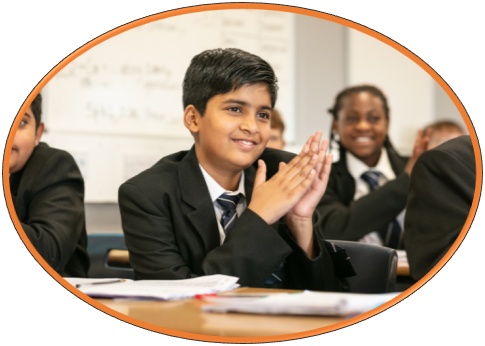History

Curriculum Overview
 In history, we believe that the acquisition of key underpinning knowledge allows students to develop a firm and deeper understanding of all areas of the curriculum. There are several key themes that form this broad base of knowledge. Students must have an increasing understanding of the concepts in different historical settings.
In history, we believe that the acquisition of key underpinning knowledge allows students to develop a firm and deeper understanding of all areas of the curriculum. There are several key themes that form this broad base of knowledge. Students must have an increasing understanding of the concepts in different historical settings.
It is important that students see how key knowledge can be transferred between the key stages. We will regularly revisit and revise the knowledge through low stakes testing and practising of the key vocabulary in every topic and in every lesson. Students will understand how to write effectively, practising source analysis, including comprehension, inference, judging reliability, being able to evaluate and explain viewpoints and interpretations, recalling, selecting and deploying factual knowledge to best effect.
Intent
History is the ability to use knowledge, empathy and understanding, learning from the past to influence and shape the future.
Implementation
Teachers will:
- Use the scheme of work and planning to enable all students to:
- Know and understand their local history, through an exploration of the backgrounds of our community and our belief that we must learn from the past to better understand the future;
- Use historically grounded vocabulary to communicate confidently, intelligently, empathetically and without bias;
- Plan a curriculum that works within a coherent and chronological narrative, from the earliest times to the present day;
- Model and teach students how to use different sources to understand how people’s lives have shaped this nation;
- Plan opportunities for all students to consider, from different viewpoints, how the UK has influenced and been influenced by the wider world;
- Plan a curriculum to include opportunities of students to understand, compare and contrast subject themes, such as migration, food and farming, location and society at key points in history and concepts such as continuity and change, cause and consequence, similarity, difference and significance, and use them to make connections, draw contrasts, analyse trends, frame historically valid questions and create their own structured accounts, including written narratives and analyses;

- Use carefully considered knowledge organisers to encourage independence and factual retention;
- Provide opportunities to regularly revisit previous knowledge using retrieval tasks and recall tests;
- Carefully monitor students’ progress against key milestones and take swift actions to support those who fall behind;
- Celebrate students’ work through classroom displays, school exhibitions and competitions throughout the GLC and the wider community.
Impact
Students will:
- Have a detailed knowledge of history over time, but more importantly, will secure the skills needed to be a historian and as a result achieve well;
- Be equipped with the cultural capital, skills, knowledge, norms and values] to be good, well-informed open-minded and responsible citizens;
"Look to history to help to grip the future and actively effect positive change."
Staff:
| Name | Contact |
| Miss J Curran | johanna.curran@theglc.org.uk |
| Mrs S Shaw | sarah.shaw@theglc.org.uk |
| Mrs E Cecil | emma.cecil@theglc.org.uk |
| Mrs L Hunt | laura.hunt@theglc.org.uk |
| Miss J Lee | jodie.lee@theglc.org.uk |
GCSE EXAM PAPERS
Copies of GCSE exam papers on this subject can be found below. Please click on the title of each past paper to download, view and complete these. Be sure to review them for valuable practice and insight into the exam format.

